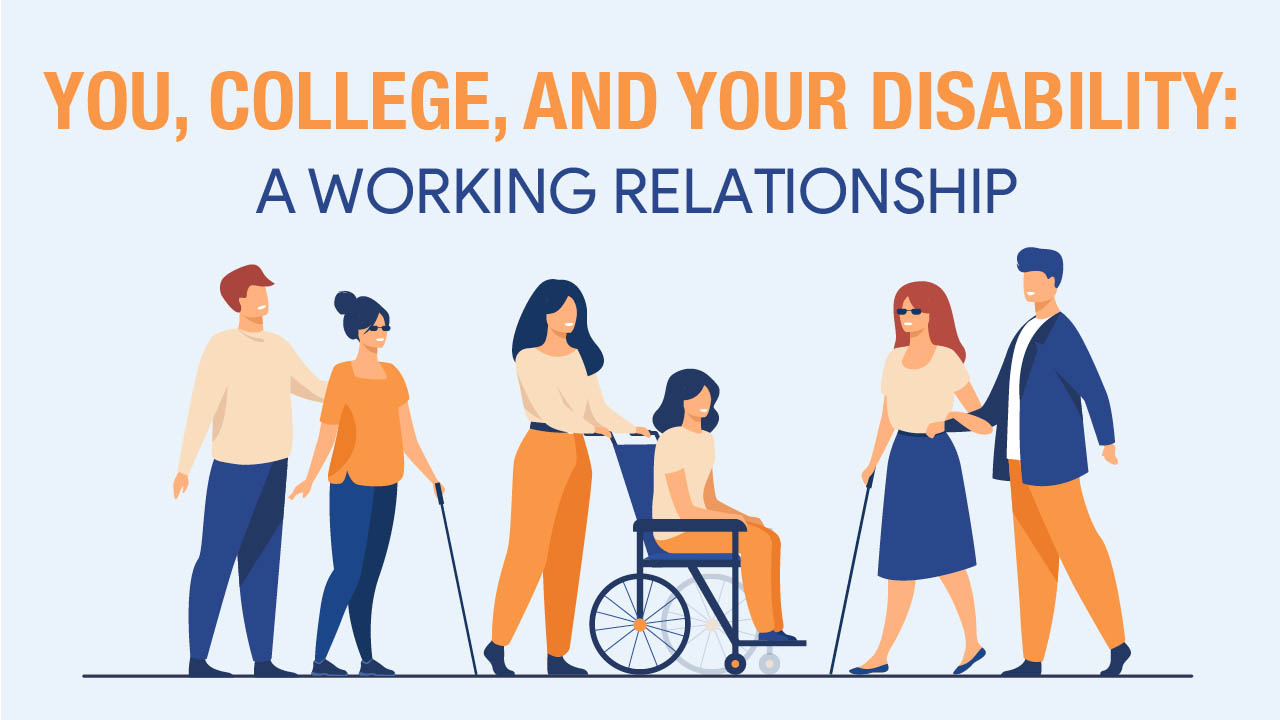You, college, and your disability: a working relationship
 CREDIT: FSU PUBLICATIONS AND COMMUNICATIONS DEPARTMENT
CREDIT: FSU PUBLICATIONS AND COMMUNICATIONS DEPARTMENTThe best way to have an amazing college experience when you have a disability is to ensure you are properly accommodated and knowledgeable about what the college offers students in your position. If you’re a college student with a physical disability, invisible disability or suspected disability, preparing yourself mentally, emotionally and psychologically to access the best education should be a high priority.
Maybe you are about to enter your first ever semester at college, what now? Jen Meksula, an accessibility counsellor at Fanshawe imparted some invaluable wisdom when it comes to being prepared for the college experience whilst living with a disability.
“Gathering as much information as possible about a program is a great first step, so doing things like attending an open house where you get to meet the faculty, you’ll get to chat with students and say, ‘tell me about your typical week. How many hours a week are you spending on a course?” she suggested. “Gathering that information before you come is a way of then being able to sort of predict or estimate what your experience might be like.”
Physical disabilities
Fanshawe College students who are living with physical disabilities or challenges should be aware of the many facilities, supports and aides that the college offers to students with physical disabilities.
“We have elevators, accessible seating and with having ramps, it really has made the campus much more accessible physically,” said Meksula. “For some students, barriers could include personal care needs, doing daily hygiene…. sometimes students need support to be able to accomplish those. We can often arrange for [Personal Support Workers] from the community to come in and assist students to live independently in residence. Over in residence there are accessible units where there are showers and lowered sinks and back bedrooms which have a lift if required.”
If students are concerned about funding the necessary facilities or services, there is also assistance in that department.
“Funding is often based on not just on disability but also on financial need,” said Meksula.
Invisible disabilities and suspected disabilities
Invisible disabilities can include issues anywhere from Attention Deficit Hyperactive Disorder (ADHD) to chronic pain, brain injury or even mental health issues. Meksula said there are many ways the college can assist within the parameters of invisible disabilities.
“[We link] with the Adaptive Technology computer lab, who have a technologist and will review and explore technology options with students,” she said. “They will have a conversation and suggest some technology that the student can then bring back to a conversation with their counsellor.”
Some of the technology the school has to assist students are peer note takers, learning strategists to help organize study schedules, recording devices and tutors as well as technology to enlarge documents to make them easier to read.
Asking for help
Articulating your needs to a counsellor sometimes is easier said than done. Meksula has guided many students through this experience and offered some key topics that you and your counsellor can tackle right out of the gate.
“It’s often a collaborative discussion with the` student, bringing their strengths and needs forward, and the counsellor also making suggestions. It’s a discussion that should occur between both.”
Meksula also highlighted one of the most common issues students with disabilities, especially invisible ones, encounter.
“With any type of disability, I think it’s really easy to underestimate or minimize how hard a person is working,” she said.
“So oftentimes, they may appear that their coping on the outside but on the inside, there may be a fair amount of distress as they try to keep up with a course load or a program…reduced course load is often one of the most common accommodations we recommend or support students to achieve.”
Taking the leap into college life is a sign of independence. Asking for help, and preparing yourself for the unexpected is a tool you will use and value throughout your life.
“Once a student is officially admitted into a program, they are given their Fanshawe online username and password,” Meksula concluded. “As soon as you have your username, you can go on and register with accessibility services and that is for students who have a known disability but also a suspected disability. Once you’re registered with our office, you link with an accessibility services counsellor and they will work with students to explore needs and challenges and prepare a plan for accommodations.”
Being prepared means taking care of yourself now. By doing this, you are much more likely to have a successful college life.

















